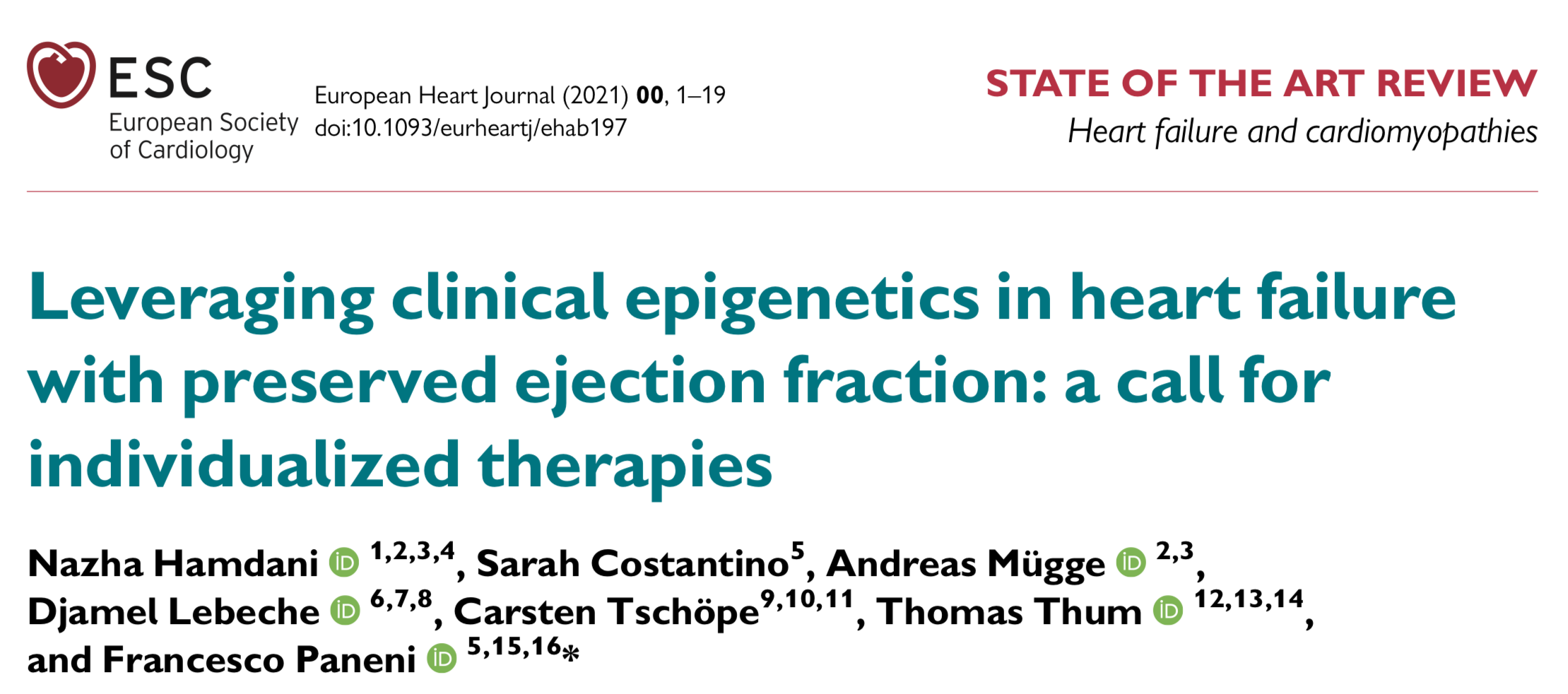Leveraging Clinical Epigenetics for the Therapy of HFpEF

In this review article, Nazha Hamdani and colleagues focus on epigenetic management tactics to be employed in patients with heart failure with preserved ejection fraction (HFpEF), a highly prevalent entity with currently no therapy available. Indeed, HFpEF represents 65% of new heart failure diagnoses, more frequently diagnosed in women and associates with a poor prognosis and unsustainable healthcare costs. Moreover, the variability in HFpEF phenotypes amplifies complexity and difficulties in the approach. In this perspective, unveiling novel molecular targets is imperative. Epigenetic modifications—defined as changes of DNA, histones, and non-coding RNAs (ncRNAs)—represent a molecular framework through which the environment modulates gene expression. Epigenetic signals acquired over the lifetime lead to chromatin remodelling and affect transcriptional programmes underlying oxidative stress, inflammation, dysmetabolism, and maladaptive left ventricular remodelling, all conditions predisposing to HFpEF. The strong involvement of epigenetic signalling in this setting makes the epigenetic information relevant for diagnostic and therapeutic purposes in patients with HFpEF. The recent advances in high-throughput sequencing, computational epigenetics, and machine learning have enabled the identification of reliable epigenetic biomarkers in cardiovascular patients. Contrary to genetic tools, epigenetic biomarkers mirror the contribution of environmental cues and lifestyle changes and their reversible nature offers a promising opportunity to monitor disease states. The growing understanding of chromatin and ncRNAs biology has led to the development of several Food and Drug Administration approved ‘epidrugs’ (chromatin modifiers, mimics, anti-miRs) able to prevent transcriptional alterations underpinning left ventricular remodelling and HFpEF.